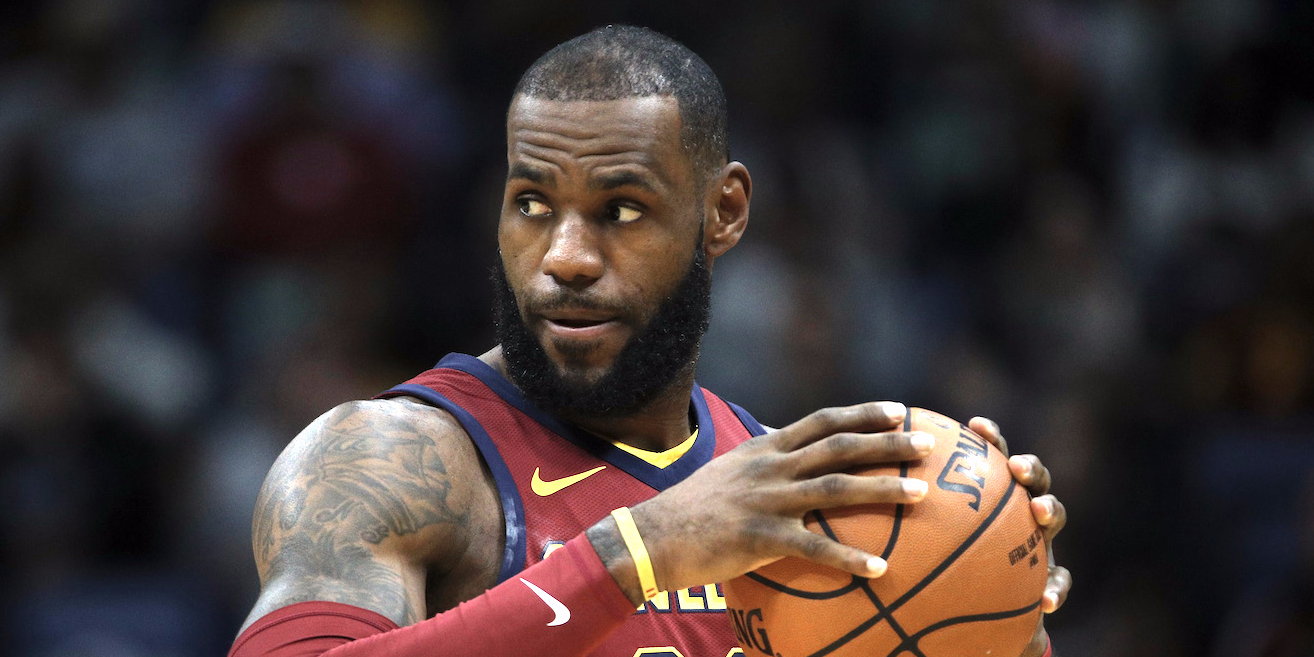- LeBron James wants to “break the mold” on his next contract when he becomes a free agent this offseason.
- James, at 33, said he wants to prove that older players can still sign huge contracts.
- It’s unclear, however, whether James means he will sign a long-term deal this summer or put off signing a long-term deal to prove that older players need such security.
For the first time since 2014, LeBron James has the chance to enter free agency without the NBA world knowing exactly what he’ll do.
Since leaving the Miami Heat to return to the Cleveland Cavaliers in 2014, James has taken one-year contracts to opt out of his deal each offseason and make more money.
After signing a three-year, $100 million contract in 2016, however, James has an opt-out this offseason, and his next contract is very much an unknown. Will he re-sign with the Cavaliers long-term or short-term? Will he leave for the Los Angeles Lakers? Will he form a new super-team with the Houston Rockets?
On Saturday, James offered a hint to Cleveland.com’s Joe Vardon, saying he wants to “break the mold” this summer and set a new precedent for future NBA players.
"I want to kind of try to break the mold just for the next generation, just take the narrative out of, 'You're past your prime when you hit 31,' or 'You're past your prime in your 12th year in the league,' or whatever the case may be," James told Vardon. "Hopefully I can break the mold so when the next guy comes, he can still get $200 or $300 million and be 33 years old. I'm serious."
James can get the most money by staying with the Cavaliers; Vardon projects a five-year max contract may come in at around $207 million. ESPN's Brian Windhorst and Ramona Shelburne previously reported James does not intend to take a discount on his next contract.
James' "break the mold" comments can be parsed several different ways. First, there is what he said upfront - most players at his age (he turns 33 on December 30) are considered past their prime and don't get max contracts. That's not the case for James, who is having an MVP-level season in his 15th year.
James' initially planned to sign the first $200 million contract in 2016, but was foiled by the NBA's "over-36" rule, which prevented teams from signing players to five-year deals if they would hit 36 during the course of the contract. James was part of a group of players who helped re-negotiate that rule to "over-38" in the new CBA, meaning he is once again able to sign a five-year deal.
There's also a question of whether he wants to "break the mold" of his own creation. As mentioned, James has been taking relatively short-term deals with the Cavs since 2014. Is James saying he intends to break that mold and sign a long-term deal this summer? He could sign a five-year deal with the Cavs or a four-year deal if he went to another team.
It could also go the other direction. James could mean that he wants to break the mold of older players taking long-term contracts to ensure their security as their careers wind down. James has shown no signs of declining, and if he takes another short-term deal this summer, he would almost certainly be in line for a big contract one year or two years from now. While taking a one- or two-year contract this summer would ruin James' ability to sign another five-year deal (he would be over 38 on any future five-year deals), it would also maximize his leverage with a team, as he's done with the Cavaliers, and keep his options open.
Either way, James' decision will have an impact around the NBA. Teams with cap space, such as the Lakers, are hoarding room to try and lure James. The Cavs, at a crossroads themselves, will base all offseason decisions on whether James is staying or going. NBA free agency as a whole will likely be put on pause until James makes his decision.
That decision is still to be determined, but in James' mind, it will make a statement.

